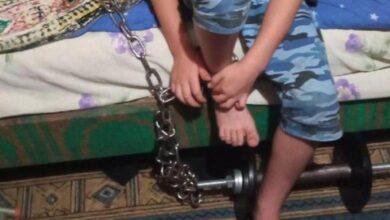Every 5 recruited is a minor: law enforcement officers spoke about the recruitment of Ukrainian children by Russia

During the full-scale war in Ukraine, a new generation grew up – not by age, but by experience. This generation saw the evacuation of school classrooms during air raids, explosions in the streets of their cities, the loss of relatives, moving from home to unfamiliar shelters and bomb shelters, studying online to the sounds of artillery shelling. This generation is the children of the war, who live near the front or far from it, but every time they watch videos from Bakhmut, Kharkiv or Kherson. They are not fighting, but they are already deeply involved in the war – psychologically, emotionally, culturally. And today they have become a new target of the Russian special services.
Ukrainian law enforcement officers reported on the revealed scheme of recruitment of minor citizens of Ukraine by the special services of the Russian Federation. It is a systemic activity that covers different regions of Ukraine, uses the mechanisms of social networks and is primarily aimed at vulnerable teenagers – from dysfunctional families, the environment of internally displaced persons, those who were left without the support of their parents or found themselves on the verge of psychological fatigue and isolation.
This will be announced on April 17, 2025, during the telethon told Nadiya Sytnyk, head of the Department of Organization of the Educational Security Service of the National Police of Ukraine. She noted that the first stage of recruitment takes place through social networks, mainly on Telegram, where children receive offers to perform minor tasks – draw graffiti, post leaflets or leave symbolic inscriptions on the walls. All this — for a small reward, a few hundred hryvnias or a new gadget. For a child who doesn’t have his own money, who doesn’t feel needed, who is used to total indifference, this already seems like an opportunity to prove himself, get recognition and a material result.
“At first, they offer to complete small tasks, for example, draw graffiti or distribute some leaflets, stick them up, which does not seem to be such a crime at first glance, and they give a small amount of money for it. And gradually, by manipulating and blackmailing, they can involve teenagers in committing more serious crimes – setting fire to cars, etc.” — said Nadia Sytnyk.
Her words are confirmed by real criminal cases. 13-year-old teenagers turned out to be the youngest executors of Russian tasks, who were exposed when the Ukrzaliznytsia relay cabinets were set on fire. Among the recruits there are also older teenagers who took part in observing the infrastructure, gathering information about military facilities, filming roads and roadblocks. And all this under the guise of “interesting missions”, “challenges”, “games”. The oldest among the perpetrators exposed by the law enforcement officers was a 52-year-old man who tried to plant explosives in the Dnipro.
At the same time, the spokesman of the Security Service of Ukraine Artem Dekhtyarenko stated, that teenagers are especially vulnerable to manipulative influence, as they are not yet able to fully understand and evaluate what their actions can lead to. That is why the Russian special services most often try to involve teenagers, as well as people who are in difficult life circumstances, to carry out sabotage.
According to him, the executors of such tasks most often include minors, the unemployed, or those with drug, alcohol, or gambling addictions. According to the SBU data, 22% of the exposed persons (that is, almost one in five) who agreed to cooperate with the Russian special services were minors, 55% did not have a permanent job, and another 7% had previous convictions for various crimes.
“Such people are much more susceptible to psychological influence: young people are not fully aware of the consequences of their actions, and those with addictions need money at any price.
Since May 2024, we have observed an intensification of sabotage at railway facilities and arson of vehicles of the Armed Forces of Ukraine. And since the beginning of 2025, the Russian special services have finally demonstrated that they do not have any moral boundaries: they resort to the organization of terrorist attacks with the use of explosives and even involve children in this.” – emphasized the spokesman of the SBU.
The National Police emphasizes: the main reason for vulnerability is not yet formed critical thinking. Children take a lot of information literally, have no experience in recognizing manipulation, and are easily influenced by emotions. And at the same time, they are the most technically savvy users: they know how to encrypt correspondence, create temporary accounts, and hide traces of activity. This gives the impression of being in control, when in reality they are just pawns in the adults’ game.
Law enforcement officers urge parents to pay attention to children’s behavior, changes in their social circle, signs of withdrawal, suspicious interest in military topics, and the unexpected appearance of money or new gadgets. If the child cannot explain where they came from, this is a wake-up call and at the same time a signal for dialogue, not punishment. After all, the main tool for counteracting such schemes is the presence of an adult nearby, contact, conversation, participation in the inner world of the teenager.
This phenomenon testifies to the psychological front that Russia is waging against Ukraine. Recruiting children is her strategy. And it is possible to break its circle only when children are not left alone with TikTok, Telegram and the desire to prove their importance to someone.





